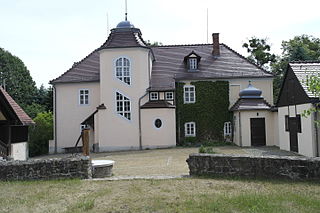 W
WKäthe Kollwitz was a German artist who worked with painting, printmaking and sculpture. Her most famous art cycles, including The Weavers and The Peasant War, depict the effects of poverty, hunger and war on the working class. Despite the realism of her early works, her art is now more closely associated with Expressionism. Kollwitz was the first woman to not only be elected to the Prussian Academy of Arts but to also receive honorary professor status.
 W
WThe Käthe Kollwitz House in Moritzburg, Saxony, is one of three museums in Germany dedicated to the artist Käthe Kollwitz (1867—1945), the other two being the Käthe Kollwitz Museums in Cologne and Berlin.
 W
WThe Käthe Kollwitz Museum is a museum in Berlin that owns one of the largest collections of works by the German artist Käthe Kollwitz (1867–1945), who lived and worked in Berlin's Prenzlauer Berg for over 50 years.
 W
WThe Käthe Kollwitz Museum in Cologne owns the largest collections of works by the German artist Käthe Kollwitz (1867–1945) and has maintained close links with the Kollwitz family. The museum is owned and operated by the Kreissparkasse Köln savings bank.
 W
WThe Käthe Kollwitz Prize is a German art award named after artist Käthe Kollwitz.
 W
WHans Kollwitz was a German epidemiologist, eldest son of artist Käthe Kollwitz. He obtained his degree in medicine and psychotherapy in 1928. He was also a World War I veteran, in which he voluntarily served, after joining from the German Youth Movement where he was a Wandervogel.
 W
WMother with her Dead Son is a Pietà sculpture by the artist Käthe Kollwitz.